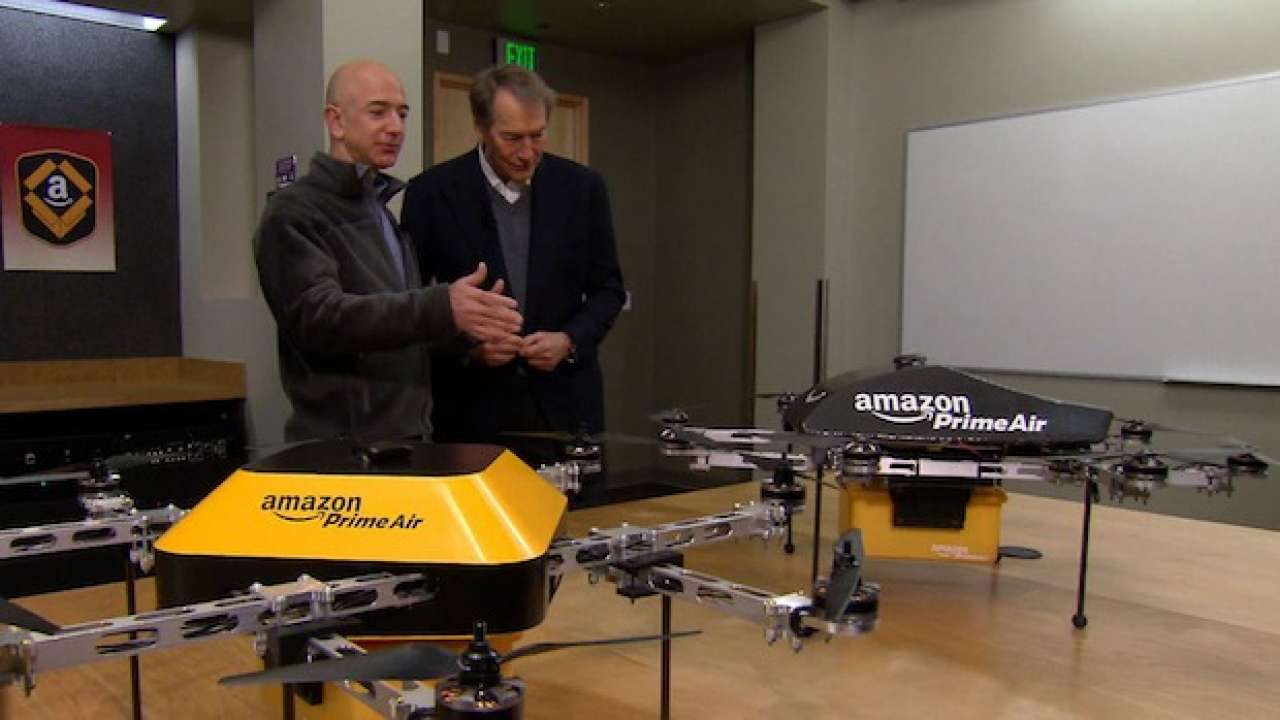Bad News, Amazon: FAA Mulls Tighter Commercial Drone Regs

As you may recall, last year’s 60 Minutes tour of Jeff Bezos’s magic factory – aka Amazon – included a portion devoted to showing off the company’s intention to start delivering packages to customers’ doorsteps using autonomous drones. Since then, the FAA has blocked Amazon’s hopes of rolling this service out in the United States – and a new report sounds like they’re about to make it even harder.
According to the Wall Street Journal, insiders at the FAA have detailed new rules on commercial drones that the administration will likely implement soon, most of which will make it damn near impossible for Amazon Prime Air – as well as Google’s own experiments with drone delivery – to take off here in America. The rules will include that drones must stay below 400 feet in the air, and must remain within sight of a person at the controls. Moreover, the controller must also be a certified pilot of manned aircraft, and flights are restricted to daytime hours. In short, these new rules – if passed – would keep Google and Amazon’s drone dreams from coming true.
In a lot of ways, these new rules are going in reverse of ground-based transportation. Projects like Google’s self-driving car have seen rule amendments to account for autonomously controlled vehicles on roads in some states. In the air, however, the FAA is making it much harder for commercial entities to send drones into the skies.
A key difference, of course, is that self-driving cars could potentially provide a much greater safety and environmental benefit to society; if numerous people pile into one self-driving car, rather than all those people each driving their own cars, the risk of traffic accidents (and the amount of pollution produced) would increase. Commercial drones from Amazon and Google, by contrast, aren’t much more than fancier way of connecting people with new possessions. That’s not quite a laudable goal in the FAA’s eyes, I’d imagine.
That said, give it time. Amazon and Google have a way with influence, and – let’s be honest – corporations hold tremendous sway in Washington already. If these companies want to flex some muscle when it comes to this issue, don’t’ be surprised to see it happen.
[Source: Wall Street Journal]